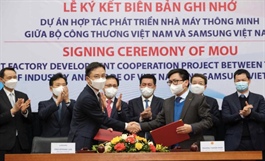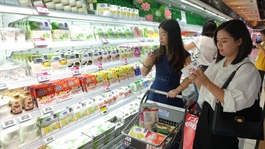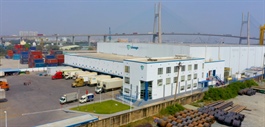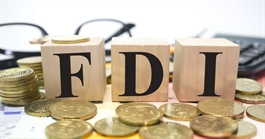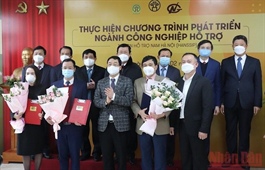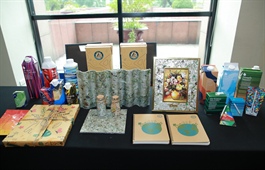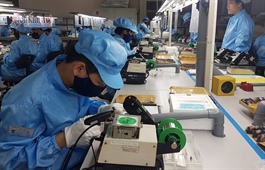Hanoi prioritizes sustainable development of agricultural production
Hanoi prioritizes sustainable development of agricultural production
The development of large-scale concentrated cultivation areas would help Hanoi meet growing demands for high-quality farm products in the domestic market and abroad.
Hanoi is prioritizing resources for the development of concentrated cultivation areas, seen as a key solution to ensure the efficiency and sustainability of agricultural production.
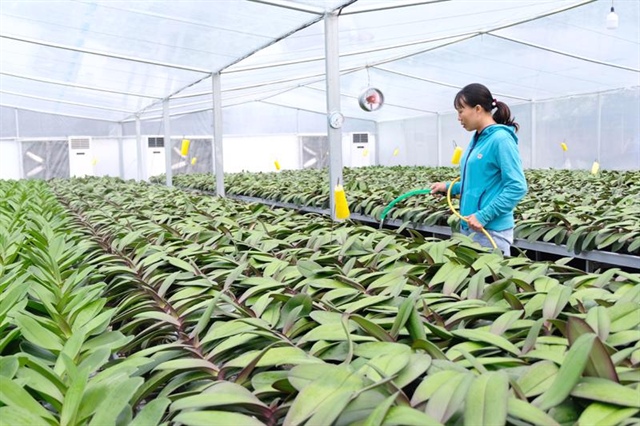
Applying advanced technologies in planting moth orchids in My Hung Commune, Thanh Oai District. Photo: Trong Tung |
Along with the implementation of a land consolidation policy, the authorities’ efforts in promoting new-style rural areas in Hanoi’s suburbs are creating favorable conditions for the development of large-scale concentrated cultivation areas, with the production process is largely based on the unique advantages and competitiveness of each locality.
In less developed rural districts such as Soc Son, Phu Xuyen, My Duc, or Ba Vi, there has been significant progress in the creation of concentrated cultivation areas.
In Son Son District, the local authorities have rearranged over 528 hectares of fragmented agricultural land parcels into concentrated cultivation areas, including organic vegetables planting areas of over two hectares each under VietGAP standards in the Thanh Xuan, Tan Dan, or Hien Ninh communes; fruits planting areas of over five hectares the communes of Phu Cuong, Phu Minh, Nam Son; and herbs plantings in two hectares at Bac Son, Minh Tri, and Xuan Giang communes.
Meanwhile, Thanh Oai District, given its advantage near Hanoi, has been focusing on promoting hi-tech farming.
Vice-Chairman of the Thanh Oai District People’s Committee Nguyen Trong Khien said the district is developing a concentrated crop cultivation area of over 3,000 hectares, another 300 hectares for fruit trees, and 100 hectares for clean vegetables.
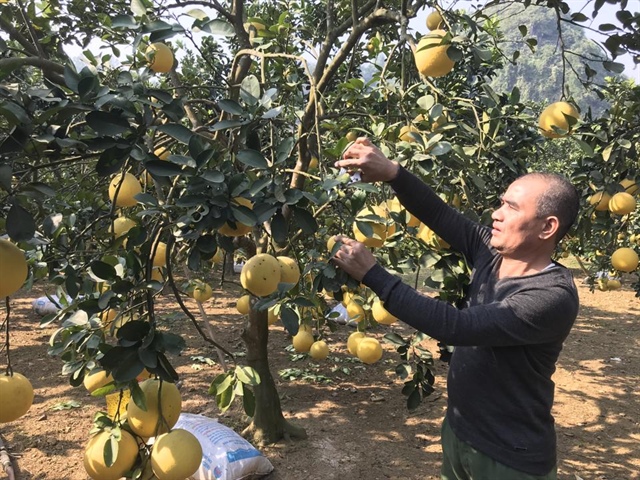
Grapefruit concentrated cultivation area in Nam Phuong Tien Commune, Chuong My District. Photo: Ngoc Anh |
The district also promotes the safe production chain from A to Z of the Hoang Long cooperative (Tan Uoc Commune), fragrant rice Boi Khe (Tam Hung Commune), duck egg Lien Chau (Lien Chau Commune).
A report from the Hanoi Department of Agricultural and Rural Development stated the city has formed mass concentrated cultivation areas, including high-quality crop cultivation zone with a turnover 25-30% higher than traditional production method; safe vegetable zone generating revenue of VND400 million – 1.2 billion ($17,600 – 52,573) per hectare per year; or fruit trees yielding up to VND1 billion ($44,000) per hectare per year.
Focusing on planning and infrastructure development
While there have been certain successes in the process, the Director of the Hanoi Department of Agricultural and Rural Development Chu Phu My identifies several challenges that are hindering the sustainable development of the Hanoi agricultural sector.
According to My, the agricultural production process in Hanoi remains fragmented and not integrated into value chains.
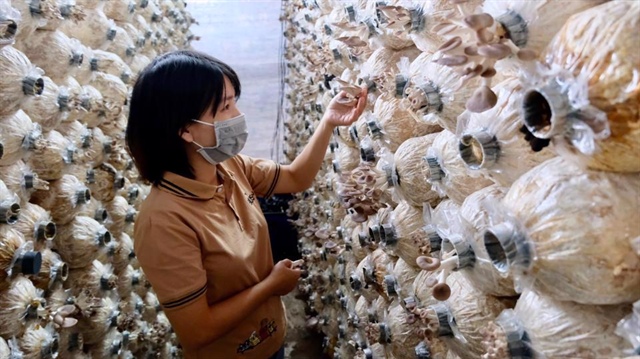
Producing organic mushrooms in Minh Phu Commune, Soc Son District. Photo: Lam Nguyen |
In addition, there has been a lack of investment in agricultural infrastructure, from electricity, road transportation, to irrigation systems, as well as a coordinated plan to promote brands for farm produce in both domestic and international markets.
In the coming time, My expected the sector to focus on developing large-scale concentrated cultivation areas to meet growing demands for high-quality products in Hanoi and abroad.
My stressed the necessity to invest in both infrastructure system and brand building, along with the development of distribution network for agricultural products.
To realize the goal, Hanoi’s authorities are set to soon complete the planning process for agricultural production in association with promoting new-style rural areas.
Vice-Chairman of the Hanoi People’s Committee Nguyen Manh Quyen said the move would serve as a legal basis for localities to call for investment into agriculture and push for hi-tech farming development.
“Hanoi would allocate additional funds for agricultural development, especially in R&D, technology transfer, and application of science-technology in the farming process, along with the construction of a hi-tech agricultural center to help farmers use technological advancements,” Quyen noted.







